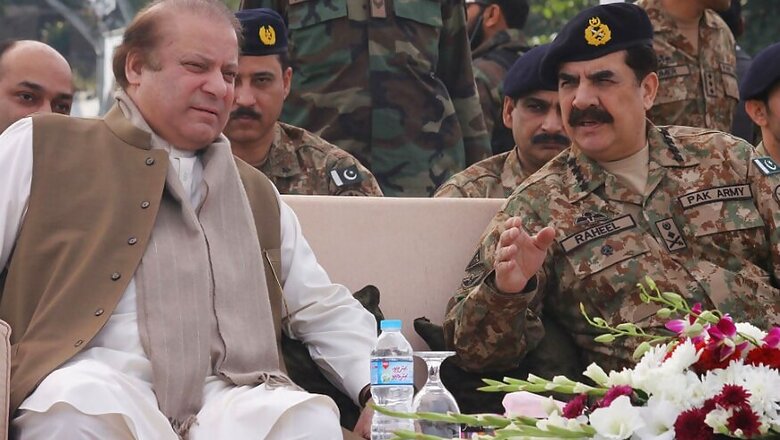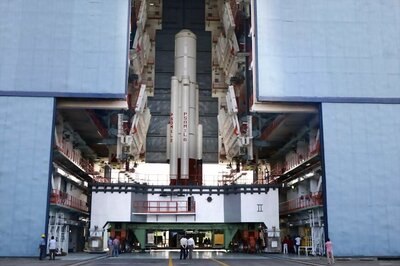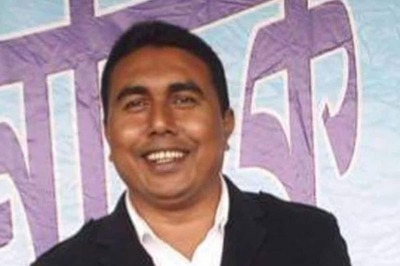
views
New Delhi: The stage seems set for a confrontation between the Nawaz Sharif government and the Pakistani Army over the Uri attacks, its diplomatic fallout and the Indian Army’s retaliatory surgical strikes.
PM Sharif and the larger political fraternity in Pakistan are also getting increasingly wary of army chief General Raheel Sharif’s political ambitions.
On the other hand, the Pakistani Army establishment is livid over the CNN-News18 expose on Wednesday where a senior intelligence officer in Pakistan Occupied Kashmir confirmed the surgical strikes by Indian Special Forces that took place on September 30. The Army is furious that a civilian officer gave away details that Army had been steadfastly denying, including its hand in terror movement across the Line of Control (LoC).
Meanwhile, the civilian administration has told the Pakistani Army that it is difficult to keep a permanent lid on such information.
On Thursday, Pakistani newspaper Dawn reported that an “undisclosed” meeting took place between the civil and military leaderships in Islamabad on the sidelines of an All-Party Conference on Monday.WATCH: Pakistan's Denial Over Surgical Strikes Exposed
The Dawn report pointed to the gravity of the situation inside Pakistan when it said that “in a blunt, orchestrated and unprecedented warning, the Nawaz Sharif government has informed Pakistani generals of a growing international isolation of the country.”
CNN-News18’s sources in Pakistan administration said that during this meeting PM Nawaz Sharif fired from the shoulders of his younger brother and Punjab Chief Minister Shahbaz Sharif, who bluntly told ISI chief General Rizwan Akhtar, who was also present in the meeting, that the federal government’s “good work can’t be dismantled by army.”
Sharif junior also reportedly warned the ISI chief not to use his state Punjab for terror camps and related activities. His indication was towards the two main jehadi groups – the Muridke-based LeT and the Bahawalpur-based JeM – which are Punjab-based but have Jammu & Kashmir as their core focus area.
According to Dawn, the meeting also witnessed a verbal confrontation between Shahbaz Sharif and ISI chief Gen Rizwan Akhtar. PM Nawaz Sharif had to intervene to cool down the tempers.
Interestingly, during the meeting Pakistan Foreign Secretary Aizaz Chaudhry told the military leadership that even the country’s all-weather friend China had expressed a preference for a “course correction” by Pakistan. “Then, to a hushed but surprised room, Chaudhry suggested that while China has reiterated its support for Pakistan, it too has indicated a preference for a change in course by Pakistan. Specifically, while Chinese authorities have conveyed their willingness to keep putting on technical hold a UN ban on Jaish-i-Mohammad leader Masood Azhar, they have questioned the logic of doing so repeatedly,” the report said.LISTEN IN: The Telephone Conversation That Exposed Pakistan
Dawn said that as a result of the most recent meeting, at least two sets of actions have been agreed.
“First, ISI DG Gen Rizwan Akhtar, accompanied by National Security Adviser Nasser Janjua, is to travel to each of the four provinces with a message for provincial apex committees and ISI sector commanders. The message: military-led intelligence agencies are not to interfere if law enforcement acts against militant groups that are banned or until now considered off-limits for civilian action. Gen Akhtar’s inter-provincial tour has begun with a visit to Lahore. Second, Prime Minister Nawaz Sharif has directed that fresh attempts be made to conclude the Pathankot investigation and restart the stalled Mumbai attacks-related trials in a Rawalpindi antiterrorism court,” the report said.
Dawn said it pieced together the story based on its conversations with individuals who were present in the crucial meetings this week. “All declined to speak on the record and none of the attributed statements were confirmed by the individuals mentioned,” the report said.
The meeting was chaired by Prime Minister Sharif and included senior cabinet and provincial officials. On the military side, ISI DG Rizwan Akhtar led the representatives. The presentation by the foreign secretary summarised the results of the recent diplomatic outreach by Pakistan, the crux being that Pakistan faces diplomatic isolation and that the government’s talking points have been met with indifference in major world capitals.
Chaudhry said that relations with the US have deteriorated and will likely further deteriorate because of the American demand that action be taken against the Haqqani network. On India, Chaudhry stated that the completion of the Pathankot investigation and some visible action against Jaish-i-Mohammad were the principal demands, Dawn said.
Responding to foreign secretary Chaudhry’s rather dramatic conclusions, the ISI chief present in the meeting is reported to have asked what steps could be taken to prevent the drift towards isolation. “Chaudhry’s reply was direct and emphatic: the principal international demands are for action against Masood Azhar and the Jaish-i-Mohmmad; Hafiz Saeed and the Lashkar-e-Taiba; and the Haqqani network,” Dawn said.
“To that, Gen Akhtar offered that the government should arrest whomever it deems necessary. At that point came the stunning and unexpectedly bold intervention by Punjab Chief Minister Shahbaz Sharif. Addressing Gen Akhtar, the younger Sharif complained that whenever action has been taken against certain groups by civilian authorities, the security establishment has worked behind the scenes to set the arrested free. Astounded onlookers describe a stunned room that was immediately aware of the extraordinary, unprecedented nature of the exchange,” Dawn said.
To defuse tensions, Prime Minister Sharif himself addressed Gen Akhtar and said that policies pursued in the past were state policies and as such they were the collective responsibility of the state and that the ISI DG was not being accused of complicity in present-day events.
Dawn said that several eyewitnesses to the “incredible events of Monday” believed that the foreign secretary’s presentation and Shahbaz Sharif’s intervention were orchestrated by the prime minister to stir the military to action, leading to the decision to dispatch the ISI DG on an inter-provincial tour.
“According to several government officials, Monday’s confrontation was part of a high-stakes gamble by Prime Minister Sharif to try and forestall further diplomatic pressure on Pakistan. In separate meetings with the army chief, participants describe an animated and energised Sharif, who has argued that Pakistan faces real isolation if policy adjustments are not made,” Dawn said.
Government officials, however, are divided about whether Prime Minister Sharif’s gamble will pay off. According to one official, commenting on the ISI DG’s commitments, “This is what we prayed to hear all our lives. Let’s see if it happens.”
Another government official offered: “Wait till November to see if action will be taken. By then a lot of things will be settled.”
Dawn said military officials declined to comment for the story.



















Comments
0 comment